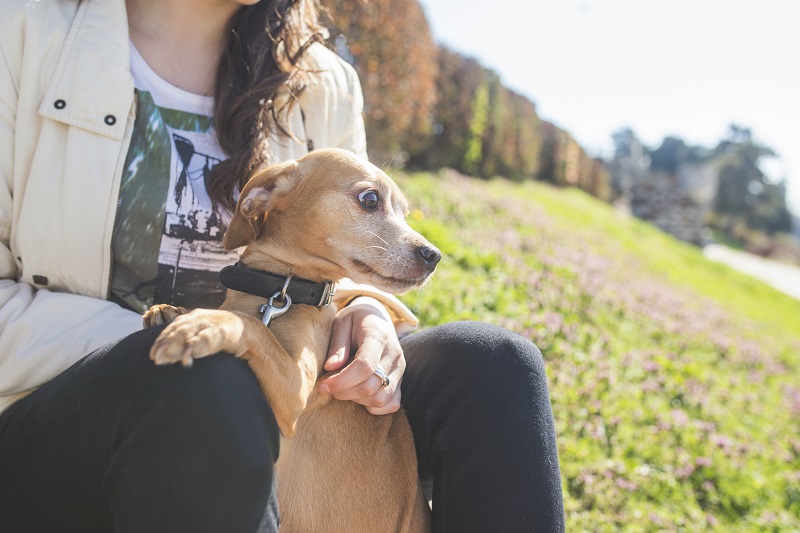It’s often said that dogs are social animals, so what happens if your little pup is withdrawn and feels scared or apprehensive around other dogs? Here are some things to try if the presence of another dog makes your puppy quake in its boots.
If you thought shyness and anxiety were traits only shown in humans, think again. But fear not – it’s perfectly natural for some puppies to be shy of things that they are unfamiliar with, including other dogs. In these instances, where fear or uncertainty is due to the novelty of other dogs, socialisation is vital. Socialisation involves exposing your puppy to all sorts of individuals, animals and situations, and fostering positive interactions during the early months of their life. The best way to socialise your puppy is at puppy school. Remember, it’s always easier to address being scared, uncertain or apprehensive rather than it is to treat it, so the importance of socialisation shouldn’t be overlooked. It is essential for any puppy, irrespective whether its your first or fourth, that they attend puppy pre-school.
“Early positive experiences and positive reinforcement are vital for the development of a happy confident dog,” says Dr. Adam Sternberg, Regional Clinical Director for Greencross Vets, who are our puppy school partners. “Socialisation and communication skills are developed in the early weeks to months of your puppy’s life. These early life experiences influence how your puppy will play, communicate and learn as they develop into an adult dog.”
Why is my puppy scared of other dogs?
There are various reasons your puppy may be afraid of other dogs, and inadequate socialisation is one of the easiest to manage. In addition, some breeds of dog may be more likely to be more timid. Even if they’ve had exposure to different people and they are more likely to be afraid because of their genetic makeup. The best thing you can do for your puppy is to not punish them for their shy behaviour, but provide them with opportunities where they feel safe to come out of their shell. Positive reinforcement is the key here. It’s also possible that your puppy has experienced something traumatic with another dog. Possibly they were attacked or threatened, making them nervous whenever they are around other dogs.
Signs your puppy is afraid or uncertain
- Trembling
- Whining
- Hiding behind your legs or furniture
- Urinating or defecating
- Defensive aggression – growling, biting, barking
Management of your puppy’s fear
Puppy school
In almost every single case, puppy school easily helps puppies to adjust to their new family and become happy, confident dogs. The homework and education needs to continue at home, however! “As Petbarn and Greencross Vets’ Puppy School is over a four to five week period, we get to support and educate puppies and their pet parents build their confidence week by week,” says Dr. Adam. “By graduation we typically see a happy, confident and social puppy with owners who understand what their puppy is feeling and how to respond.”
Desensitisation
Before embarking on any desensitisation strategy, it is imperative you consult a puppy school trainer or your veterinary health care team. Desensitisation can be difficult to carry out, and you will require the assistance and guidance of a professional.
While you help your puppy to overcome their socialisation challenges other dogs, it’s important that they trust you – so be careful not to push them too far into an unfavourable position. One of the best treatment methods for your puppy is desensitisation. This involves gradually, patiently and gently exposing your puppy to other dogs, and associating the exposure with positive feedback – like a delicious treat or their favourite toy. This does take time and its unreasonable to expect one outing will fix all. If these techniques are not working or you are finding it difficult, please make an appointment to chat with your Greencross Vet. Don’t give up! Remember that socially-challenged puppies grow into socially-challenged adult dogs.




